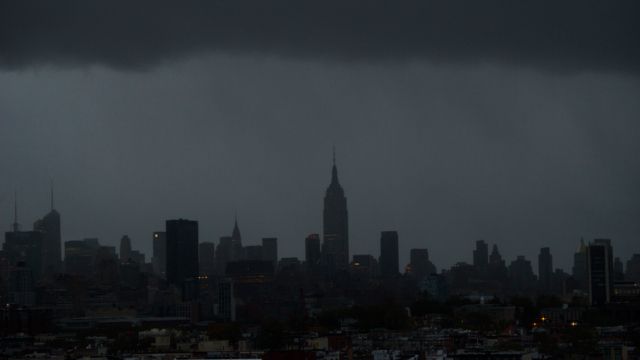
Our runaway consumption habits and growing inequality could lead to the collapse of Western civilization, according to a new short paper slated for publication the journal Ecological Economics and written up at The Guardian’s Earth Insight blog. Noting that warnings that the end is near are often “controversial,” the interdisciplinary analysis looked at the factors that have caused civilizations to collapse in the past and makes a compelling argument that we may be headed in that direction. According to The Guardian:
By investigating the human-nature dynamics of these past cases of collapse, the project identifies the most salient interrelated factors which explain civilizational decline, and which may help determine the risk of collapse today: namely, Population, Climate, Water, Agriculture, and Energy.
These factors can lead to collapse when they converge to generate two crucial social features: “the stretching of resources due to the strain placed on the ecological carrying capacity”; and “the economic stratification of society into Elites [rich] and Masses (or “Commoners”) [poor]” These social phenomena have played “a central role in the character or in the process of the collapse,” in all such cases over “the last five thousand years.”
Currently, high levels of economic stratification are linked directly to overconsumption of resources, with “Elites” based largely in industrialized countries responsible for both:
“… accumulated surplus is not evenly distributed throughout society, but rather has been controlled by an elite. The mass of the population, while producing the wealth, is only allocated a small portion of it by elites, usually at or just above subsistence levels.”
In the scenarios the researchers studied, the “elites” were the last to feel the effects of the collapse, which, at first, were only apparent to those beneath them on the social ladder.
In both scenarios, Elite wealth monopolies mean that they are buffered from the most “detrimental effects of the environmental collapse until much later than the Commoners,” allowing them to “continue ‘business as usual’ despite the impending catastrophe.” The same mechanism, they argue, could explain how “historical collapses were allowed to occur by elites who appear to be oblivious to the catastrophic trajectory (most clearly apparent in the Roman and Mayan cases).”
However, the paper’s authors wrote that it’s not a given that we will go the way of the Romans. If we take action to halt climate change and rein in inequality, the worst-case scenario won’t be realized. “Collapse can be avoided and population can reach equilibrium if the per capita rate of depletion of nature is reduced to a sustainable level, and if resources are distributed in a reasonably equitable fashion,” they wrote.
Read the full article about the study at The Guardian »
Correction: This piece originally stated that the short paper referenced was actually a NASA-funded study. That was an inaccurate characterization. NASA developed the research tools used in the study, but did not oversee the study. We regret the error, and have corrected it on this page.

